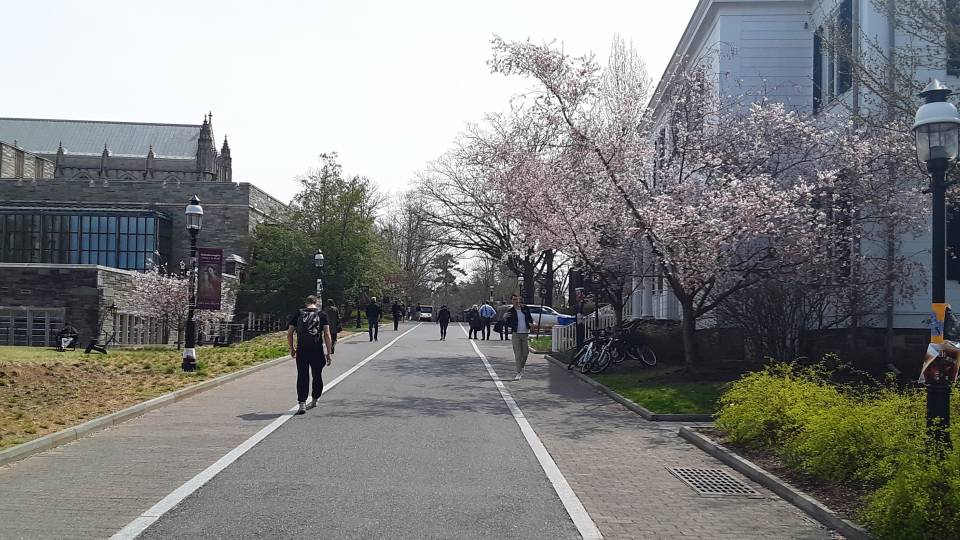As part of continuing efforts to control underage drinking, Princeton University is implementing a new ID system to help prevent individuals below the legal age from entering Princeton eating clubs.
A newly designed University identification card will be issued to faculty and staff dependents under the age of 21 in a cooperative effort with the eating clubs' managing boards. The goal is to reduce the number of high school students who try to patronize the off-campus establishments.
There are 10 clubs on Prospect Avenue adjacent to the Princeton campus that are private, independently owned and operated institutions where the majority of upperclass students eat their meals and take part in social activities.
Discussions between University administrators and eating club leaders concerning alcohol issues over the past year identified the ID change as one way to limit the guests of the clubs most likely to engage in high-risk drinking. The distinguishable underage IDs will supplement other alcohol-control initiatives already in place, including a wristband system to prevent drinking at the clubs by underage University students.
"We are responding to a need expressed by the Princeton Borough Council and the eating club officers, who believe this strategy will reduce the presence of high school and other underage students in the clubs," said Janet Dickerson, the University's vice president for campus life. "We expect that the clubs will be less attractive to members of this targeted underage population if they know their IDs will be visibly different."
The new under-21 dependent cards are bright yellow picture IDs with holographic images of tigers to prevent duplication. The former dependent cards were black and orange with the tiger holographs, matching those of University students and adult faculty and staff.
The general intent of University IDs, known as TigerCards, is to establish the affiliation of employees and their dependents to Princeton University, allowing entry to certain athletic, library, health, dining and other campus facilities.
"Not only should the new cards discourage minors from going to the eating clubs," said Chief Steven Healy of the University's Department of Public Safety, "but they will also make it easier for the people monitoring the doors to differentiate between students and dependent family members of the University, and therefore limit entry."
"Managing a drinking environment has been shown as an effective way to eliminate the possibilities for underage and high-risk drinking," Healy added. "This is another way for the University and the eating clubs to work together to improve the environmental controls at the clubs."
University faculty and staff with dependents under 21 -- including spouses, domestic partners and children -- have been notified by email that they will have to exchange their old dependent IDs for the new easily identifiable cards beginning Aug. 1, 2006, and no later than Sept. 7, 2006, at the University's TigerCard Office.

